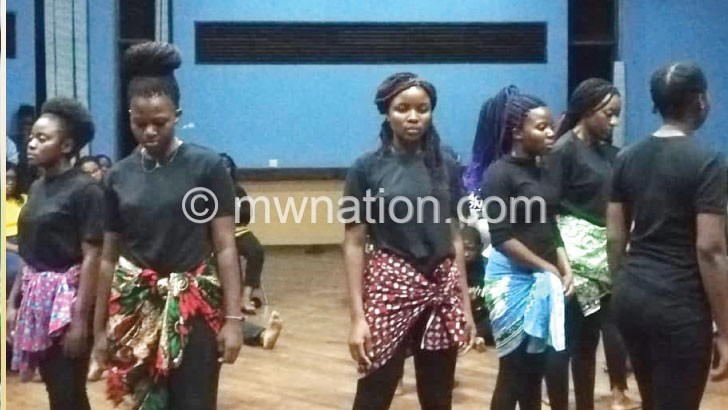Breaking the silence
On Wednesday night, the Little Theatre at Chancellor College in Zomba was the centre of attraction for students and those living around the liberal arts college. truck
Here, the stage was set for a performance of The Curse of the Hyena, a play created by Chancellor College theatre for development lecturer Zindaba Chisiza, and performed by his troupe under a project called Brother to Brother Malawi.
The play tackles issues of rape, sexual violence and abuse based on true stories of female students.
On face value, it seemed like a mere theatre performance aimed at entertaining and educating the audience.
But it transpired later during a post-performance discussion that these are true stories which some students experience on campus and opt to suffer in silence.

“We want to break that silence,” said Chisiza.
He said the play is used as a means of providing a platform for people to open up and discuss issues of rape, sexual violence and abuse.
“These are things we don’t want to talk about as a society, especially men. Very few men will speak up or speak about these issues.
“One of our goals is to have a lot of men participate. We want to find ways of making men open up about these issues so that we begin to get a conversation on sexual violence, rape and abuse,” Chisiza said.
Apart from Chancellor College, the play will also be staged at the Lilongwe University of Agriculture and Natural Resources, Kamuzu
College of Nursing, St Luke’s College of Nursing, Domasi College of Education and some secondary schools.
The performances are part of the 16 Days of Activism against Gender-Based Violence which seeks to amplify the call for the prevention and elimination of violence against women and girls.
The campaign falls between November 25 and December 10. This year, the theme is Generation Equality Stands Against Rape!
Chisiza acknowledged that both women and men experience rape, but he said his programme is promoting the rights of girls and women, with an orientation to get men talk.
“As Brother to Brother, we do radio plays, film, theatre, music, outreach programmes and peer to peer education. But for this campaign, we decided to put up a play that will raise a discussion and allow people to reflect on gender-based violence.
“The play is inspired by true stories that happened on campus. We came across these issues during our research we conducted prior to writing the play. So, we hope that the play will challenge the audience to reflect and interrogate themselves, and inspire them to do something,” he said.
Brother to Brother Project, which began last year with funding from UN Women, seeks to get men to construct positive masculinities.
According to Chisiza, positive masculinities are identities that promote equality between the genders and are devoid of gender-based violence, rape, oppression, sexual violence and abuse.
“Our focus is on masculinity, sexual reproductive health issues, gender-based violence, rape, abuse, youth empowerment, social justice and youth gender activism,” he said.
So far, the programme has recruited 54 young people from Chancellor College.
Brother to Brother project beneficiary Thandeka Thandiwe Lizi said the programme has helped students talk about issues that would otherwise be swept under carpet.
“For instance, the play we staged is about girls who suffered rape and sexual abuse, but we are targeting men to talk about these.
“We didn’t just make up the stories. We acted on true stories that happened on campus to break the culture of silence and help us reason together on what needs to be done for girls to live on campus without fear of being raped or sexually harassed,” she said.
Grawin Felix Silumbu, a second year bachelor of arts (sociology) student, said issues of rape and sexual abuse are as a result of patriarchy where men hold power and women are largely excluded from it.
“We need to sustain these conversations even after the 16 days of activism until a time when women are not viewed as being subordinate to men,” he said.





